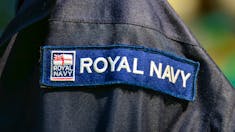What Is a Good ASVAB Score?
All products and services featured are independently selected by WikiJob. When you register or purchase through links on this page, we may earn a commission.
The ASVAB is scored on a scale with an average set at 50. This means that a score of 50+ is considered above average, and a score between 65 to 99 would be considered a good or excellent score. However, certain jobs will have lower benchmarks.
| Category | Percentile | Grading Scale |
|---|---|---|
| I | 93–99 | Outstanding |
| II | 65–92 | Excellent |
| III A | 50–64 | Above Average |
| III B | 31–49 | Average |
| IV A | 21–30 | Below Average |
| IV B | 16–20 | Need Improvement |
| IV C | 10–15 | Untrainable |
| V | 0–9 | Untrainable |
Prepare for the ASVAB Test with JobTestPrep
Navigating the intricacies of the Armed Services Vocational Aptitude Battery (ASVAB) and understanding what constitutes a good ASVAB test score is crucial for those aiming to join the US military.
As a comprehensive assessment tool, the ASVAB evaluates candidates' knowledge and skills across various domains, helping military recruiters determine their eligibility and suitability for different roles within the armed forces.
This article will delve into the complexities of ASVAB scoring, outline the components of ASVAB scores, shed light on what defines a good score and provide valuable insights into how to achieve a good ASVAB test score.
What Are the ASVAB Scores?
The Armed Services Vocational Aptitude Battery (ASVAB) is a comprehensive test used by the US military to assess candidates' skills and knowledge across various areas.
ASVAB scores are classified into three main types:
- Standard scores
- Composite scores
- Percentile scores
Among these, the Armed Forces Qualification Test (AFQT) score is particularly critical, as it determines a candidate's eligibility for enlistment in the US military.
Standard Scores
ASVAB standard scores are derived from the raw scores of the subtests and are calculated using a formula that ensures consistency across various test versions.
The standard score range for the ASVAB is from 0 to 100, with 50 being the average score. This means that a score of 50 represents the mean performance of test-takers.
Composite Scores
Composite scores are calculated by combining different subtest scores and are used to assess a candidate's qualification for specific military roles.
These scores help the military determine a candidate's suitability for various positions based on their performance in different test areas.
Percentile Scores
ASVAB percentile scores indicate how a candidate's score compares with the scores of other test-takers.
A percentile score of 50 means that the candidate performed better than 50% of the other test-takers.
This score helps candidates understand their relative performance compared to the broader population of test-takers.
What Is a Good ASVAB Score?
A good ASVAB score depends on the specific goals of the test-taker. For military enlistment, different branches of the military have varying minimum score requirements.
The AFQT score, in particular, is crucial in this context.
Generally, a score of at least 31 is required for enlistment in the Army, while the Air Force and Navy often require a minimum score of 36. The Marines typically seek a minimum score of 35, while the Coast Guard usually requires a score of 40 or higher.
This chart provides an overview of ASVAB score ranges:
| Category | Percentile | Grading Scale |
|---|---|---|
| I | 93–99 | Outstanding |
| II | 65–92 | Excellent |
| III A | 50–64 | Above Average |
| III B | 31–49 | Average |
| IV A | 21–30 | Below Average |
| IV B | 16–20 | Need Improvement |
| IV C | 10–15 | Untrainable |
| V | 0–9 | Untrainable |
It's important to note that you may have higher minimum score requirements if you do not have a high school diploma but have passed the General Educational Development (GED) test.
Understanding the subtest scores is also essential for evaluating a candidate's performance. These scores indicate the candidate's proficiency in specific subject areas, helping to determine their strengths and weaknesses.
While a good score varies depending on the career path or military branch, it is generally beneficial to aim for scores above the minimum requirements for enlistment.
What Is the Highest ASVAB Score?
The highest possible score on the ASVAB is 99, representing exceptional performance across all subtests. However, achieving this score is exceptionally rare due to the rigorous nature of the test.
The ASVAB scoring system takes into account the difficulty levels of individual questions, and a perfect score on each subtest is a challenging feat to accomplish. Despite the rarity of achieving a perfect ASVAB score, strong candidates typically score in the 70s, 80s or 90s.
Understanding the intricacies of the ASVAB scoring system can provide insight into the challenges associated with achieving the highest possible score. It is crucial to prepare effectively, focusing on specific areas relevant to the candidate's goals, rather than striving for a perfect score in every subtest.

If you need to prepare for a number of different employment tests and want to outsmart the competition, choose a Premium Membership from JobTestPrep.
You will get access to three PrepPacks of your choice, from a database that covers all the major test providers and employers and tailored profession packs.
How to Achieve a Good ASVAB Score
To achieve a good ASVAB score and perform well on the exam, it's essential to adopt effective study strategies and preparation techniques.
Here are some tips to help you excel in the ASVAB:
Step 1. Set Clear Goals
Define your objectives based on your purpose for taking the test. If your aim is to join the military, prioritize the AFQT score and relevant subtests, focusing your study efforts on these areas.
If you're using the ASVAB for career exploration, use the scores to identify your strengths and weaknesses, guiding your future career decisions.
Step 2. Practice with Real Samples
Access official ASVAB practice tests and study materials to familiarize yourself with the test format, question types and content. Practice consistently to build confidence and enhance your understanding of the assessment's structure.
Step 3. Create a Structured Study Schedule
Develop a comprehensive study plan that accommodates your daily routine.
Allocate specific time slots for studying different subjects, and ensure you maintain a disciplined approach to your preparation.
Consistent and regular study sessions are more effective than sporadic cramming sessions.
Step 4. Develop a Strategic Approach
Gain a deep understanding of the ASVAB scoring system and the test format. Familiarize yourself with the types of questions asked in each subtest and learn how to navigate the exam smartly.
Understanding the scoring process can help you approach questions more strategically, increasing your chances of selecting the correct answers.
Additionally, learning time management techniques can be beneficial in ensuring that you have enough time to answer all questions within the given time frame.
A good ASVAB score varies depending on individual goals and the requirements of the desired military branch or career path. For military enlistment, each branch has its own score requirements, with minimum AFQT score requirements ranging from 31 to 40.
The Air Force typically requires a minimum AFQT score of 36 for enlistment. However, candidates should aim for scores that align with their career goals and the requirements of their desired roles within the Air Force.
For the Army, a minimum AFQT score of 31 is generally required for enlistment. However, it is advisable to target scores that align with the candidate's desired career path within the Army, as a higher score will be required for career advancement.
The Navy typically requires a minimum AFQT score of 36 for enlistment. Candidates should aim for scores that meet the requirements of their preferred roles within the Navy.
The highest possible ASVAB score is 99, representing exceptional performance across all subtests. However, achieving this score is exceedingly rare due to the challenging nature of the test and the diverse skills and knowledge it evaluates.
ASVAB scores determine a candidate's eligibility for various roles within the military. The specific job options available depend on the candidate's overall ASVAB score, composite scores and the requirements of different military branches and occupational specialties.
Final Thoughts
Understanding the nuances of the ASVAB scoring system is essential for setting realistic goals and achieving success in the test.
While aiming for the highest possible score is commendable, it is crucial to focus on the specific score requirements of the desired career path or military branch.
By following strategic study methods and preparing effectively, candidates can aim for a 2026 good ASVAB score that aligns with their goals and aspirations.



